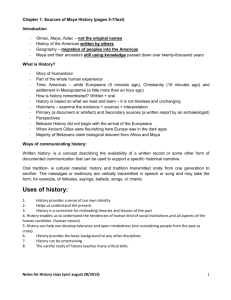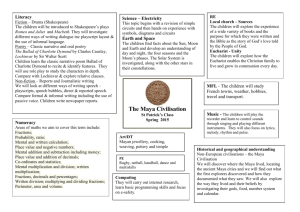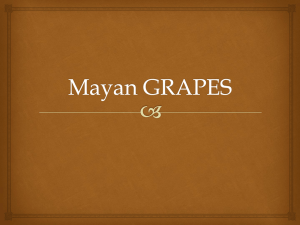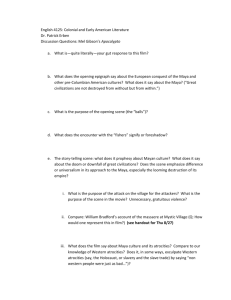evaporation
advertisement
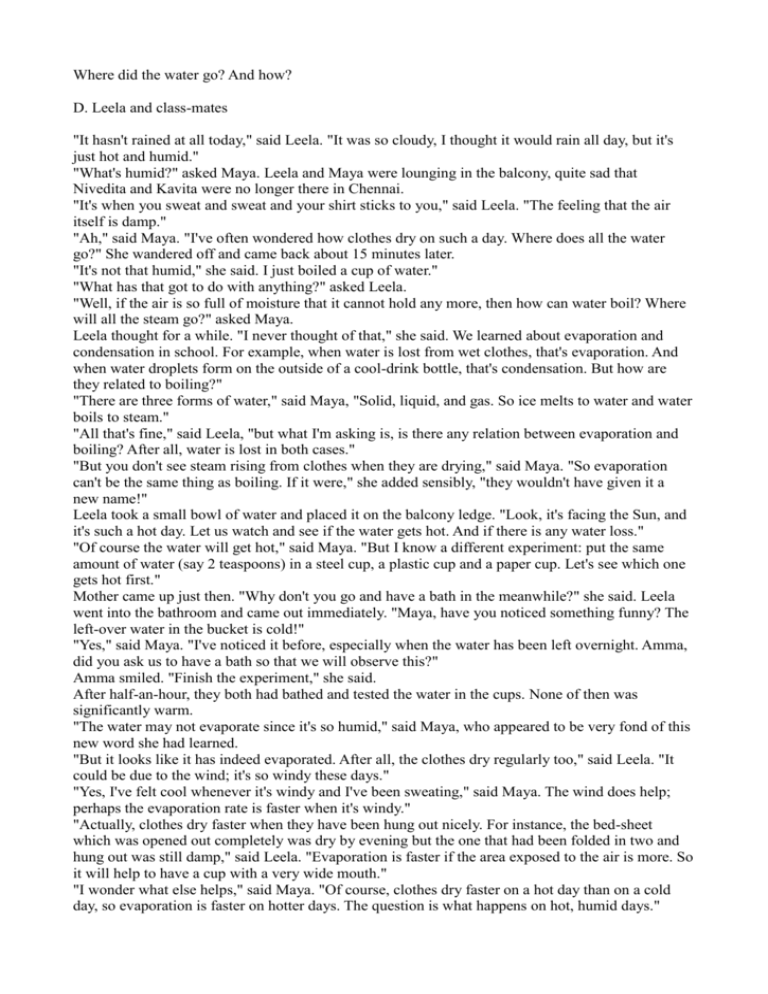
Where did the water go? And how? D. Leela and class-mates "It hasn't rained at all today," said Leela. "It was so cloudy, I thought it would rain all day, but it's just hot and humid." "What's humid?" asked Maya. Leela and Maya were lounging in the balcony, quite sad that Nivedita and Kavita were no longer there in Chennai. "It's when you sweat and sweat and your shirt sticks to you," said Leela. "The feeling that the air itself is damp." "Ah," said Maya. "I've often wondered how clothes dry on such a day. Where does all the water go?" She wandered off and came back about 15 minutes later. "It's not that humid," she said. I just boiled a cup of water." "What has that got to do with anything?" asked Leela. "Well, if the air is so full of moisture that it cannot hold any more, then how can water boil? Where will all the steam go?" asked Maya. Leela thought for a while. "I never thought of that," she said. We learned about evaporation and condensation in school. For example, when water is lost from wet clothes, that's evaporation. And when water droplets form on the outside of a cool-drink bottle, that's condensation. But how are they related to boiling?" "There are three forms of water," said Maya, "Solid, liquid, and gas. So ice melts to water and water boils to steam." "All that's fine," said Leela, "but what I'm asking is, is there any relation between evaporation and boiling? After all, water is lost in both cases." "But you don't see steam rising from clothes when they are drying," said Maya. "So evaporation can't be the same thing as boiling. If it were," she added sensibly, "they wouldn't have given it a new name!" Leela took a small bowl of water and placed it on the balcony ledge. "Look, it's facing the Sun, and it's such a hot day. Let us watch and see if the water gets hot. And if there is any water loss." "Of course the water will get hot," said Maya. "But I know a different experiment: put the same amount of water (say 2 teaspoons) in a steel cup, a plastic cup and a paper cup. Let's see which one gets hot first." Mother came up just then. "Why don't you go and have a bath in the meanwhile?" she said. Leela went into the bathroom and came out immediately. "Maya, have you noticed something funny? The left-over water in the bucket is cold!" "Yes," said Maya. "I've noticed it before, especially when the water has been left overnight. Amma, did you ask us to have a bath so that we will observe this?" Amma smiled. "Finish the experiment," she said. After half-an-hour, they both had bathed and tested the water in the cups. None of then was significantly warm. "The water may not evaporate since it's so humid," said Maya, who appeared to be very fond of this new word she had learned. "But it looks like it has indeed evaporated. After all, the clothes dry regularly too," said Leela. "It could be due to the wind; it's so windy these days." "Yes, I've felt cool whenever it's windy and I've been sweating," said Maya. The wind does help; perhaps the evaporation rate is faster when it's windy." "Actually, clothes dry faster when they have been hung out nicely. For instance, the bed-sheet which was opened out completely was dry by evening but the one that had been folded in two and hung out was still damp," said Leela. "Evaporation is faster if the area exposed to the air is more. So it will help to have a cup with a very wide mouth." "I wonder what else helps," said Maya. "Of course, clothes dry faster on a hot day than on a cold day, so evaporation is faster on hotter days. The question is what happens on hot, humid days." "I'm going to keep count of how many times you use the word 'humid'," laughed Leela. "But you are right. Let's wait and see." By evening both the girls were impatient. "Some water has definitely been lost from all the containers, but none of the water is hot at all," said Maya. "And now that it's evening and the Sun is about to set, there's no chance that the water will heat up at all," said Leela. On that disconsolate thought, they both went to bed that night. The next day, all the cups had very little water in them and they were all dry by the evening. But the water was still not hot to the touch. The girls were puzzled. Mother just then came to the balcony. "Let's ask Amma," said Leela. Amma said, "Well, you are the children who enjoyed those mugs of cold water in the bucket that was left overnight. Didn't that give you any ideas?" "Yes," said Leela, "we forgot about that. Why was the water cold?" "Because it had lost its heat," said Maya promptly. Leela laughed and then looked serious. "That's right," she said. If you have a bucket of normal water and it is colder the next day, it must have lost heat. But then what did it lose the heat to?" "To the air," said Maya, promptly again. "Actually, the bucket of water is just like our experiment. It should lose a spoon of water or so every day by evaporation and ultimately should become empty if you wait long enough." "So are both the water and heat being lost?" asked Maya. "Maybe it's the water evaporating into the air which is taking the heat away from the remaining water in the bucket." "That's right," said Mother. "Actually, you will learn in school that water is a molecule. In fact, all matter is made up of small particles called atoms. Groups of atoms are called molecules. The molecules of water are at a fixed temperature in the room, but they do not all have the same energy." "Yes, it's like a class of children: some molecules have more energy and some have less. And this energy keeps on changing since the molecules keep hitting each other and gaining or losing energy all the time," continued Mother. "I got it," said Leela, "You give energy in the form of heat to boil off water into gas. Now, in the cup of ordinary water, some molecules collide with other molecules and get more and more energy. They soon find that they have enough energy to turn into gas." Maya added, "Well, if they are getting energy from colliding with other molecules, it means some molecules are losing energy because we are not heating the cup." "Yes," said Mother. "Some molecules get energy and this energy is lost by other molecules." "And so the left-over water in the bucket is cool," laughed Leela. "But the water in the balcony was not as cool." "Well, you had put it in sunlight, so there was a source of heat, although it was far away. But clothes dry even without sunlight. As long as the air is not saturated with moisture, there will always be evaporation." "Yes, so evaporation is like a boiling off, except there is no external source of heat," said Leela. "But we learned that water boils at 100 degrees C, and the room temperature is much less than this. So it's not really boiling." "So is it boiling or is it not?" asked Maya. "You are confusing me." "It's a case when liquid molecules are turning into gas below the boiling point. In fact, that's exactly the meaning of evaporation. Boiling happens when liquid becomes gas at the boiling point." "I guess that's why it's called boiling point!" said Maya. "Yes," said Leela. "And now I understand why there's no such thing as an evaporation point. Evaporation happens at all temperatures below the boiling point. It may be faster nearer the boiling point, but that's all." "And it's faster when there's wind, so now I'm going to go and sit under the fan to cool off after all that sweat!" said Maya and went inside. "And I am going to take a bath instead, in cool water," said Leela and went in with her.



